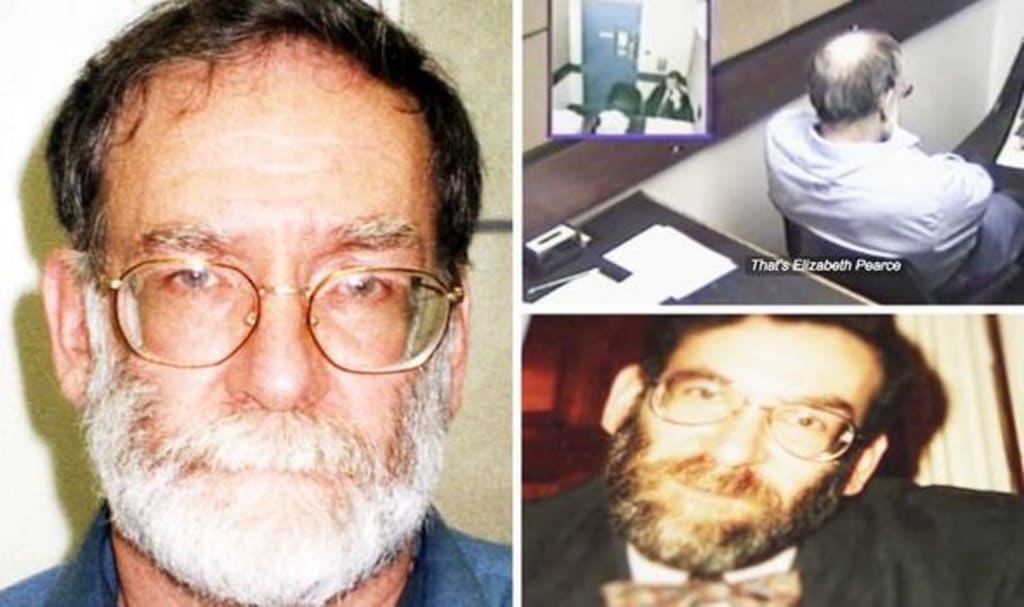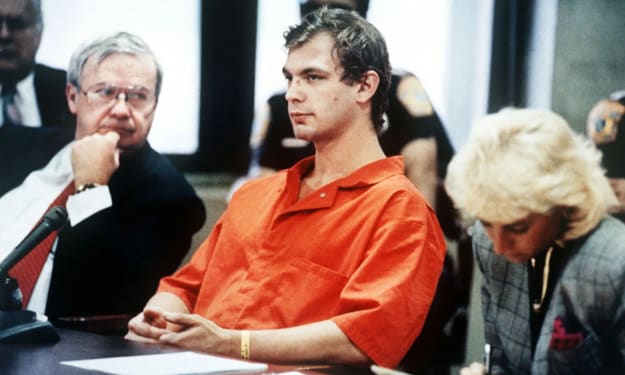Harold Shipman
Most Dangerous Serial Killer 5

Harold Shipman was a doctor who committed one of the most heinous crimes in British history. He was responsible for the deaths of at least 215 patients, although some estimates put the figure much higher. Shipman was a family doctor in Hyde, a suburb of Manchester, and had a reputation as a caring and dedicated physician. However, beneath the surface, he was a calculating killer who preyed on his patients, particularly elderly women.
Shipman's reign of terror began in the 1970s when he started injecting his patients with lethal doses of diamorphine, a powerful painkiller. He would falsify their medical records to cover his tracks and make it appear as though they had died of natural causes. Over the years, he became bolder and more brazen, even administering fatal doses of drugs in front of family members.
The true extent of Shipman's crimes only came to light in 1998 when a local undertaker raised concerns about the high number of elderly women dying in Shipman's care. An investigation was launched, and it soon became clear that Shipman had been killing his patients for over 20 years.
Shipman was eventually charged with 15 counts of murder and one count of forgery. He was found guilty on all counts and sentenced to life imprisonment without the possibility of parole. He was also stripped of his medical license and his assets were seized to compensate his victims' families.
Harold Shipman was a trusted and respected doctor in England. He was a family physician who had built a loyal patient base over the years. However, beneath the surface, he was a cold-blooded killer, responsible for the deaths of over 200 patients.
Shipman was born in Nottingham, England, in 1946. He went on to study medicine at Leeds Medical School and became a qualified doctor in 1970. He later worked as a junior doctor at Pontefract General Infirmary in West Yorkshire, where he met his future wife, Primrose.
In 1974, Shipman and his family moved to Hyde, a small town in Greater Manchester. He set up his own practice and quickly became a popular figure in the community. He was known for his kindness, his dedication to his patients, and his willingness to make house calls, even in the middle of the night.
However, as time went on, Shipman's behavior began to change. He became increasingly arrogant and started to demand complete control over his patients' medical treatment. He also began to forge medical records to cover up his misdeeds.
Shipman's first known victim was Eva Lyons, an 88-year-old woman who died in March 1995. Shipman had injected her with a lethal dose of diamorphine, a powerful painkiller. Her death was ruled as natural causes, and Shipman was not suspected of any wrongdoing.
Over the next few years, Shipman continued to kill his patients, often injecting them with lethal doses of diamorphine. He targeted the elderly and vulnerable, often those with few friends or relatives to question his actions.
It wasn't until 1998 that Shipman's crimes were finally uncovered. A local undertaker became suspicious of the number of elderly patients who had died under Shipman's care and reported his concerns to the police. Shipman was arrested and charged with the murder of 15 of his patients.
During his trial, Shipman showed no remorse for his actions. He denied all charges and even accused the police and the prosecution of fabricating evidence against him. However, the jury saw through his lies and found him guilty of 15 counts of murder and one count of forgery.
In January 2000, Shipman was sentenced to life imprisonment with no possibility of parole for 15 years. A public inquiry was also launched into the case, which found that Shipman had killed at least 215 of his patients over a period of 23 years.
Harold Shipman's crimes sent shockwaves throughout the medical community and the wider public. He had abused the trust of his patients and had betrayed the very essence of his profession. His story is a chilling reminder of the dangers that can lurk behind a friendly face and a reassuring smile.
The aftermath of Shipman's crimes had a lasting impact on the medical profession in the UK. The inquiry into his case identified numerous failings in the healthcare system that had allowed him to get away with his crimes for so long. It led to the introduction of new regulations and safeguards to ensure that doctors could not abuse their power in the same way again.
Shipman's case also sparked a wider debate about the ethics of euthanasia and assisted suicide. While Shipman's victims did not give their consent to their deaths, some argued that his actions were motivated by a desire to ease their suffering and that he saw himself as performing a form of mercy killing. However, this argument was widely rejected, and Shipman's crimes were seen as a clear violation of the Hippocratic Oath that all doctors take.
The case also had a profound impact on the families of Shipman's victims. Many of them had trusted him implicitly and had no reason to suspect that anything was amiss. The revelation that their loved ones had been murdered in cold blood by the very person who was supposed to be caring for them was a devastating blow. The fact that Shipman showed no remorse only added to their pain.
Despite the horror of his crimes, Harold Shipman remains a fascinating figure to this day. How did a respected doctor become one of the UK's most prolific serial killers? What drove him to commit such heinous acts? Was he motivated by a desire for power and control, or was there a deeper psychological reason behind his actions? These are questions that may never be fully answered, but they continue to intrigue and disturb us.
In the end, Harold Shipman's legacy is one of tragedy and loss. The lives of over 200 people were cut short by his actions, and the trust that patients place in their doctors was shattered. However, his case also serves as a warning about the dangers of unchecked power and the importance of robust systems of accountability. It is a story that we must never forget, for the sake of those who suffered and for the sake of our own future.
Despite being in prison, Harold Shipman continued to hold a fascination for many people. He received numerous letters from admirers, including some who claimed that he had saved their lives. This only served to fuel his ego and reinforce his belief in his own superiority.
Shipman's life behind bars was a far cry from the glamorous image of a serial killer that is often portrayed in movies and TV shows. He spent most of his time in solitary confinement, reading and writing letters. He was not allowed access to a computer or the internet, so he was unable to follow the media coverage of his case or the reaction of the public.
In January 2004, Harold Shipman was found dead in his cell. He had hanged himself using bed sheets. His death came as a shock to many people, who had assumed that he would spend the rest of his life in prison. Some speculated that he had taken his own life to avoid the prospect of being attacked or killed by other inmates, while others saw it as a final act of defiance.
The legacy of Harold Shipman is a complex one. On the one hand, he was a cold-blooded killer who caused immense suffering and loss. On the other hand, he was a skilled doctor who had helped many people during his career. His case raises important questions about the nature of evil, the limits of trust, and the importance of accountability. It is a story that continues to captivate and horrify us, reminding us of the dark side of human nature and the fragility of life.
In the years since Harold Shipman's death, his case has continued to be the subject of much scrutiny and analysis. Researchers have studied his behavior and the circumstances that led to his crimes in an effort to better understand the mind of a serial killer. The case has also led to important changes in the way that doctors are trained and regulated, with a greater emphasis on patient safety and transparency.
Despite these positive outcomes, the impact of Harold Shipman's crimes on the families of his victims cannot be overstated. Many of them continue to struggle with feelings of anger, betrayal, and grief. For them, the legacy of Harold Shipman is one of pain and loss, a reminder of the terrible toll that a single individual can exact on the lives of so many others.
In the end, the story of Harold Shipman is a cautionary tale about the dangers of unchecked power and the importance of accountability. It shows us that even the most trusted and respected members of society can be capable of unspeakable acts, and that we must remain vigilant in our efforts to prevent such crimes from happening again. Above all, it reminds us of the preciousness of human life, and the need to cherish and protect it at all costs.
About the Creator
Riyaz Ahamed
Lets Explore





Comments
There are no comments for this story
Be the first to respond and start the conversation.